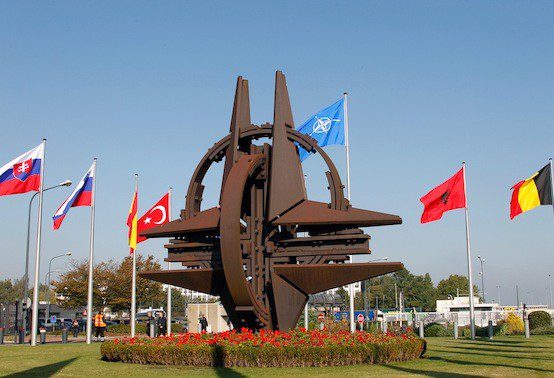Article 5 and the Illegal War on ISIS

Christopher Preble questions the wisdom of invoking Article 5 of the North Atlantic Treaty in response to the Paris attacks. Here he counters the claim that this would provide Obama a way to legalize the illegal war on ISIS without Congress:
Others have suggested that the attacks require a response, and that the North Atlantic Treaty explicitly empowers the President of the United States to circumvent Congress, and thus avoid a messy public debate. At the Washington Post online, Ilya Somin claimed that the Paris attacks gave “the Obama administration an opportunity to legalize its previously unconstitutional war against ISIS.” And that Article 5 “gives him the same authority to use force as he would have in the event of an attack on the United States itself.”
But NATO members who do invoke Article 5 are not obligated to carry out an armed response [bold mine-DL]. The precise form of support for an ally attacked is solely at the discretion of each member state, and, as noted by international legal scholar Julian Ku, “Article 9 of the North Atlantic Treaty states that “[t]his Treaty shall be ratified and its provisions carried out by the Parties in accordance with their respective constitutional processes.” (emphasis added).”
Invoking Article 5 isn’t going to solve the problem of the war’s illegality under U.S. law, and it wouldn’t compel the U.S. to do anything more than it is already doing in Iraq and Syria. The fact that both the U.S. and France have already been bombing ISIS in one or both countries for months (and in our case for well over a year) makes bringing NATO into the fight seem redundant. Most of the alliance’s members are unlikely to join the conflict or increase their contributions to the war, and so the purpose of invoking this part of the treaty would seem to be mostly to express political support for whatever the French government decides to do. The members of the alliance can do that if they wish, but it’s not clear why they must do it.
As Preble notes earlier in his article, Article 5 has been invoked only once (in response to the 9/11 attacks), and it has not been invoked in response to major terrorist attacks against other NATO members in the years that followed. Terrorist attacks on member states haven’t normally been treated as a reason to invoke Article 5, so the automatic assumption that this should be the response to these attacks doesn’t make a lot of sense. John Kasich was adamant in his speech yesterday that this is what ought to be done, but the fact that he couldn’t even get the name of the treaty right (he called it the “North American Treaty”) gives us reason to doubt that he has thought this position through as much as he should.
Preble suggests that Congress now has another opportunity to do its job by debating and voting on a resolution that would authorize the ongoing war, but that seems less likely than ever to happen. The war on ISIS will continue, and it will continue to be illegal, and almost all members of Congress will continue to avoid and deny their constitutional responsibilities.
Comments